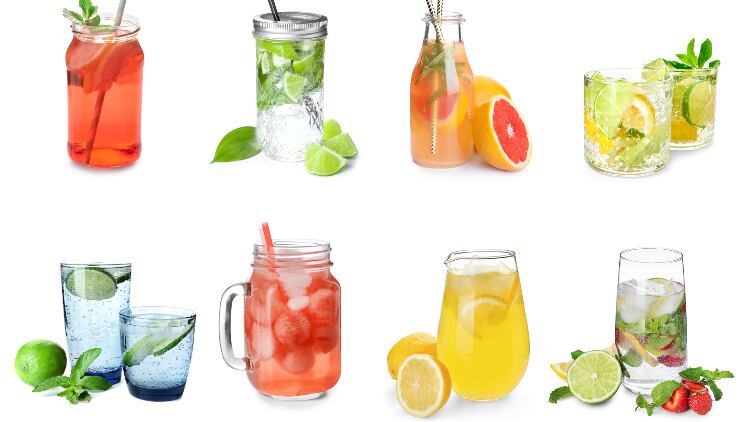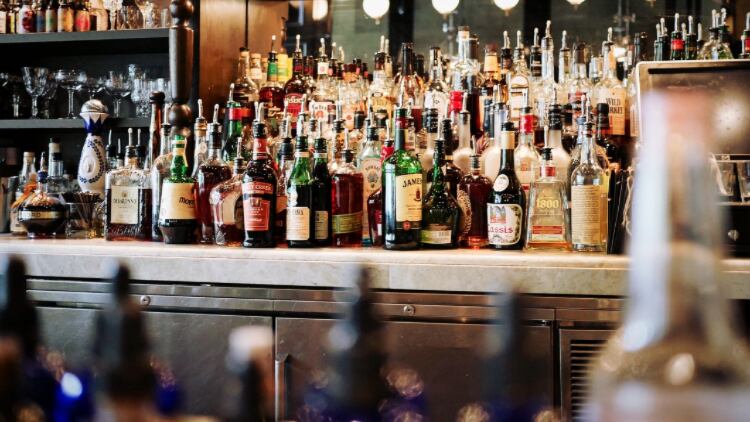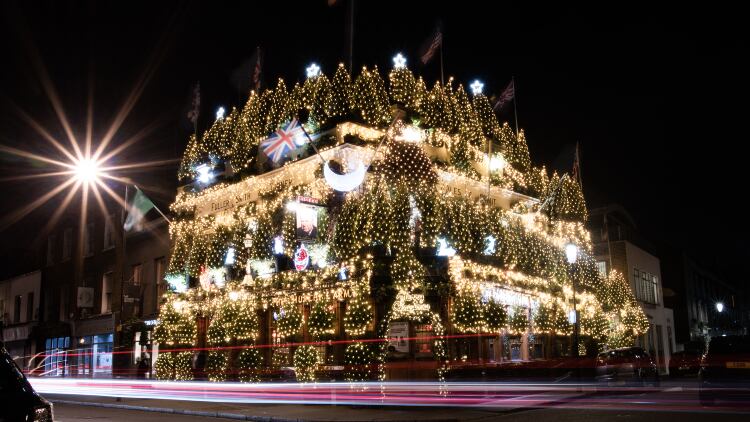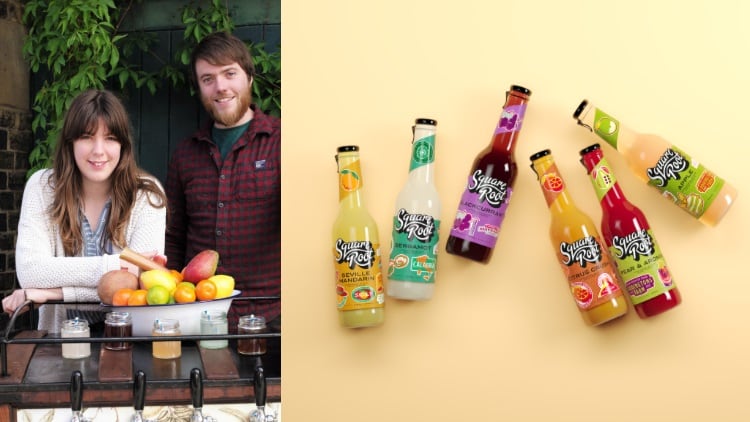Long gone are the days where customers off booze would be satisfied with lime soda – now pubgoers are looking for the same level of excitement and flavour experiences from non-alcoholic menus as they do with alcoholic options.
The adult soft drinks category has been touted as one of the UK’s fastest growing by CGA’s Prestige Foodservice Price Index. The agency found soft drinks sales have risen by 15.4% in five years as more customers look to non-alcoholic drinks when visiting pubs and bars.
This follows an increase in individuals ditching alcohol, with recent research from University College London declaring findings that more than 25% of young people classed themselves as ‘non-drinkers’.
Analysis of the annual health survey for England data showed the proportion of 16 to 24-year-olds who do not drink alcohol had increased from 18% in 2005 to 29% in 2015.
This seismic shift in lifestyle behaviour has opened up new opportunities for the pub sector. In fact, according to one drinks supplier, it is moving so rapidly that pubs must make sure they’re keeping up with customers’ preferences and changing tastes or else fall behind.
Alex Carlton, the founder of spirit alternative supplier Stryyk, says it is essential for operators to consider whether their soft drinks’ offer can compete with other outlets.
He says: “It is important for the pub and bar operators that they are aware of how fast this movement is taking place.
“It is really important that they jump on it and capitalise because if they don’t, they’re going to be struggling in the next few years to compete with the main high street operators that are expanding their non-alcohol offering.”
The change in drinking habits comes hand in hand with dry trends, Carlton adds, with more people who feel conscious about making healthy choices when they go to the pub.
He explains: “If you look at the latest food trends, we are seeing a lot of dairy free and meat-free alternatives hit the market. You see it with soft drinks, people are moving away from carbonated, sugary drinks and more to fruit-based smoothies and kombuchas.
“People are getting way more educated. They understand the health risks and benefits of eating poorly and well and they’re much more health conscious of how they feel mentally, physically and how they look.”
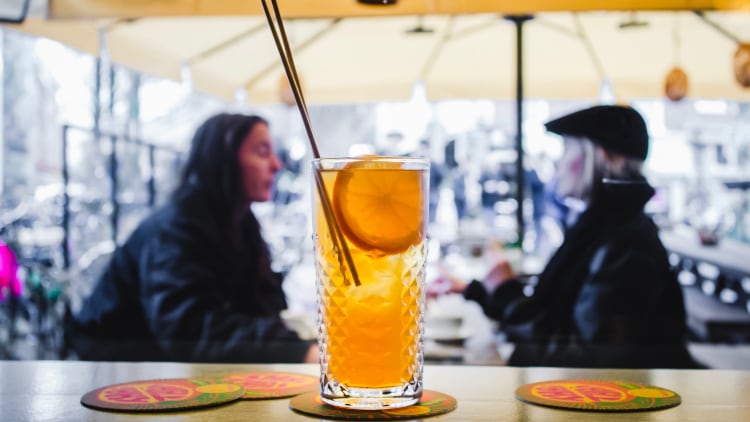
Not a soft option
Jessica Waller, head of brand at fruit cordial and juice supplier Martin Frobisher’s, agreed with this analysis that drinkers’ desire to live healthy lifestyles was driving the category.
She said: “Health-conscious, clean eating, environmentally minded Millennials continue to drive demand for soft drinks that are not the soft option.”
Interest in soft drinks is not going anywhere either. Waller predicts that growth in the category will increase even more in the coming months.
“The desire for reduced-sugar, flavour packed, alcohol-free drinks is expected to gain further popularity as we move into autumn and the run up to the festive season,” she adds.
The industry has made moves lately to eradicate the idea that not drinking an alcoholic drink at the pub means a lesser experience.
However, there is still a way to go with issues around peer pressure influencing pubgoers’ drinking habits and a taboo around opting for a soft drink rather than a pint at the pub.
More than a third of people drink more than they set out to because of social pressure, according to research from charity Drinkaware.
The organisation found that more than one in three (37%) drinkers often drink more than they planned because they were in a round.
Other reasons for drinking more included people not wanting to be rude by refusing a drink, and a sense of pressure to ‘keep up’ with their peers.
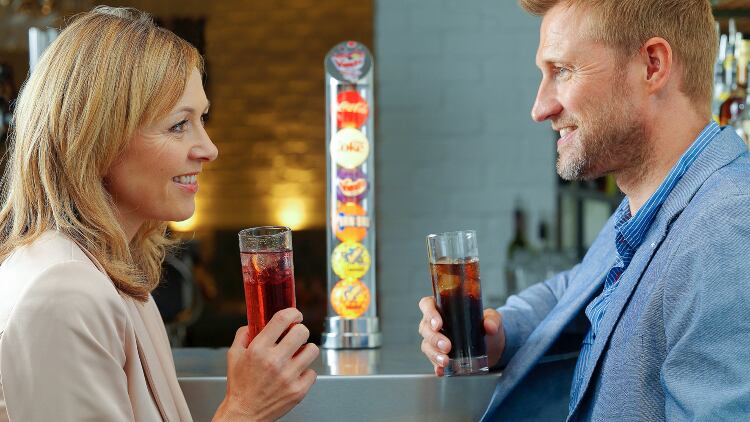
Sophisticated alternative
However, attitudes around not drinking alcoholic drinks are changing, especially as more and more drinks companies pitch soft drink options to consumers.
Martin Frobisher’s Waller says: “Alcohol-free drinks provide an opportunity to be known for grown-up, bold soft drinks that really get the party started.
“Customers who are making the lifestyle choice to socialise without alcohol want to avoid the stigma associated with not drinking and need a sophisticated alternative.
“We support operators who are prioritising non-alcoholic options to ensure that their customers can enjoy the courage without the Dutch!”
Operators Chris and Ali Sargent say they realised the value of having a strong soft drinks offering when they bought their pub two years ago.
The pair bought the White Horse Inn, Stourpaine, Dorset, in January 2017 from Hall & Woodhouse after being a business partner with the brewery for 16 years. The couple explain: “Being free from tie was a complete game-changer.
“It was of great importance right from the word ‘go’ to offer a great range of soft/ non-alcoholic drinks, there are so many people who either choose to not drink alcohol, can’t for medical reasons or they are the designated driver.”
They have found local products are a hit as well as fruit-based drinks and non-alcoholic wines, beers and ciders from the top brands.
They explain: “We offer a fantastic range of the Luscombe drinks, which are delicious and look appealing – they are organic and made in Devon. We have a couple of flavours in the J2O range and fruit shoot range as some customers still request these and we have the complete range of Fever-Tree tonics.”
Real Kombucha founder David Begg explains the customer base for kombucha is a broad church – and cannot be limited to just the health-conscious Millennial.
He says: “If you’re ordering Real Kombucha at the pub, it’s most likely because you’re looking for a genuine alternative to alcohol and you’re fed up with the sugary options that tend to dominate the bar. Increasingly, that’s all of us at one time or another.
“Whether you’re a designated driver, pregnant, having a night off, or one of the rapidly growing number of people looking to cut back on your alcohol consumption, the chances are you’ve been offered a soft drink in a pub and wished you had something a tad more sophisticated.”
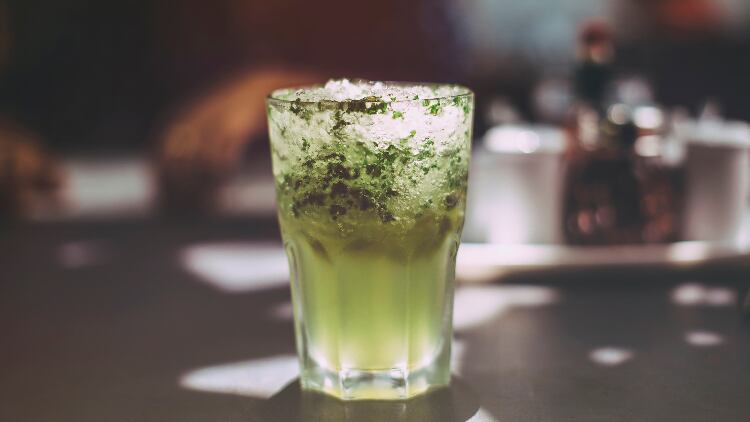
Fermented drink
Communication is crucial in marketing soft drinks to customers, Begg says, and this is particularly salient when it comes to new kids on the block like kombucha.
He explains that with kombucha – a fermented drink that can divide opinion owing to its vinegary, acidic aftertaste – operators should be aware that presentation and making a teetotal customer feel valued are essential ingredients to a good pub experience.
He says: “You can buy flavoured kombucha, which fits neatly alongside other soft drinks. You can buy kombucha prepared as a ‘health drink’, which you’re probably more likely to find in a health store. Or you can buy an unflavoured kombucha that works as an alcohol alternative.
“At Real Kombucha, we’re recognised as being at the cutting edge of that third category. We brew using very fine loose-leaf teas, and we treat and respect those teas in the same way a winemaker works with their grapes.
“Therefore, the serve is very important to us. We always serve Real Kombucha in a wine glass, chilled but not over ice. And we know that our customers respect this. Non-drinkers enjoy the theatre of the serve as much as drinkers do. If you’re given a tumbler with ice, there’s a sense that you’ve been sent to sit with the kids.”
Soft drinks are just as important as their alcoholic counterparts, according to the founder, and pubs that acknowledge this in their marketing of drinks menus will do well.
Begg explains: “We’ve seen phenomenal success when the bar staff really understand that Real Kombucha is not a kids’ drink. It’s not a soft drink. Neither is it a lesser alternative to an alcoholic drink.
“For the first time, you can drink something as complex and sophisticated as a Champagne or a craft beer that is non-alcoholic. Therefore, we encourage the bars and pubs we work with to think of it as a new category rather than as a soft drink.”
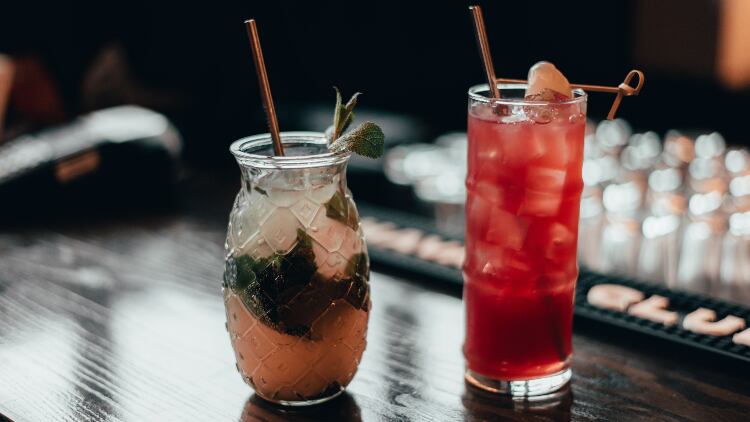
Balancing act
Chatter around new soft drinks like kombucha doesn’t mean classics are going out of style any time soon though.
The dilemma faced by operators when putting together menus is striking a balance between familiar crowd-pleasers and new products that could be a risk.
Many pubgoers who are not drinking on a visit will opt for Diet Coke and have no interest in trying something more adventurous – but the popularity of the category of craft soft drinks is on the rise.
What’s more, 53% of consumers said they found soft drinks ranges predictable and boring when eating and drinking out of home, according to the CGA BrandTrack, February 2018.
Begg agrees and says: “I think it’s early days for kombucha in the pub, but our experience in restaurants suggests that it has a very bright future.
“It’s still tough for us to compete with the cheap mainstream non-alcoholics such as Coke, Fanta or ginger beer, but in many pubs we find that we are beating all other craft soft drinks.
“We offer an entirely new USP for the customer, whereas most craft sodas are just derivatives of volume soft drinks.”
Publican Dennis Forsyth, who operates the Cheers Cafe Bar & Tavern in Fraserburgh, Aberdeenshire, says its wide range of soft drinks is primarily down to it wanting to offer variety to spirits drinkers.
He adds: “Having said that, we are definitely finding many of our customers opting to take alcohol-free drinks.
“Mocktails, alcohol-free or soft options are all one and the same as far as we are concerned, along with a good range of quality hot beverages.”
Forsyth’s advice to other pub operators who want to expand their offering for customers who do not drink alcohol is to create a cocktail list that can easily be sold with alcohol-free versions.
He explains: “Our frozen Daiquiris are a good example. Most can have alcohol replaced with a little mixer or syrup and still be very tasty.
“A wide range of mixers can mix and match with spirits such as the new Coca-Cola signature serves or FeverTree tonics and equally be offered on their own with a nice garnish.
It’s so easy to do with very little effort.”
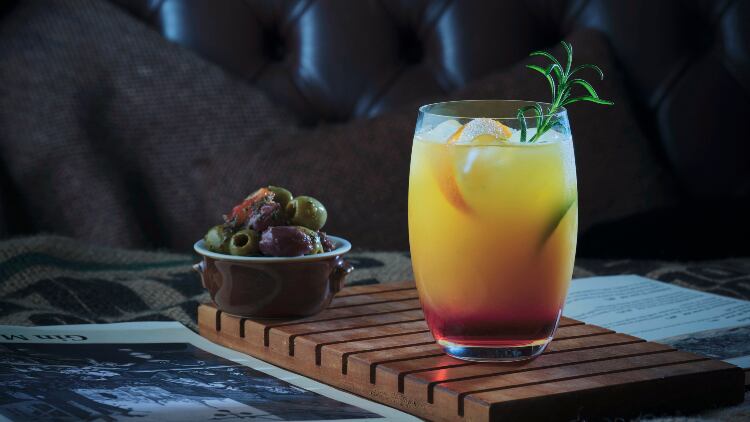
Stand-out potential
Just because a customer isn’t drinking alcohol doesn’t mean they don’t want the same theatrics and pretty serve a cocktail drinker would expect as standard practice when ordering a drink.
At Cheers, bartenders use up to 30 different premium syrups that can be mixed together to create various long drinks.
“Adding a little shimmer dust or rimming the glass with coloured sugar makes them stand out a little and is easy to do,” Forsyth says.
A particular favourite of customers is alcohol-free fruit Daiquiris, which are easy for the bar to make and cost effective – they cost about 50p to make and are sold at £3.95.
“A few strawberries, home-made sugar syrup and lime juice with some ice and you’ve got a frozen strawberry Daiquiri,” Forsyth says.
Waller recommends focusing on the sophistication and “grownup-ness” of mocktails with “drinks menus that incorporate creative flavour combinations”.
She adds: “By mixing ingredients in well-matched bar ware and finishing with a variety of fresh fruit garnishes, bar staff can deliver a sophisticated drinking experience to suit all tastes while offering a flare in the serve that can’t be recreated at home.
“Mocktails can range from concentrated shorts to long drinks but, with the right recipe planning, these are both easy to create behind the bar.
“Creative drinks can be made with minimal preparation and offer trade-up opportunities on soft drinks that go above and beyond the standard cola and lemonade options.”
Promote the ingredients on a seasonal drinks board and operators have a ready-made drinks special offering.
Served over ice, or warmed as the season changes, they can offer a delicious and sophisticated drink.
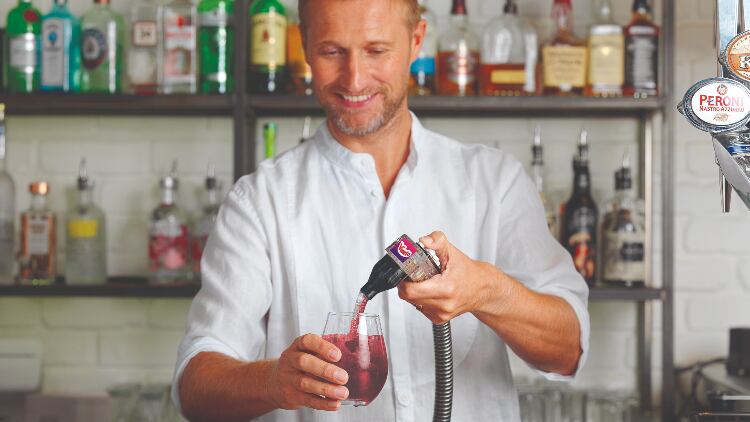
Be unique
One way to catch drinkers’ attention is to offer them something unique they haven’t seen before.
Vimto out-of-home marketing director Emma Hunt says the company’s frozen drinks have proved popular in pubs and bars because they “add a fun twist to a non-alcoholic offering”.
She explains: “We know unusual, adventurous flavours or textures ensure consumers opting for alcohol-free feel like they’re being catered for. It’s why we continue to innovate with frozen drinks and most recently launched our new flavour ‘Mystery Slush’.
“It taps into the booming trend for black food and drinks – from charcoal bread to black coconut ice cream – and has gone down a storm with consumers.
“When putting together a soft drinks menu, it’s essential to offer a wide range of choice.
“A wide range of choice will only keep customers coming back if publicans also take care in the delivery of a soft drink. The perfect serve needs quality glassware and garnishes, and even a chilled glass so customers feel the drink has been prepared not just poured.”
Small Beer Brew co-founder James Grundy says drinkers are seeking out low or no-alcohol beers more and more because of ‘hanganxiety’, as well as health preferences.
Drinkers are wary of the social embarrassment drinking too much can cause and the implications of losing control of their behaviour in a social media age.
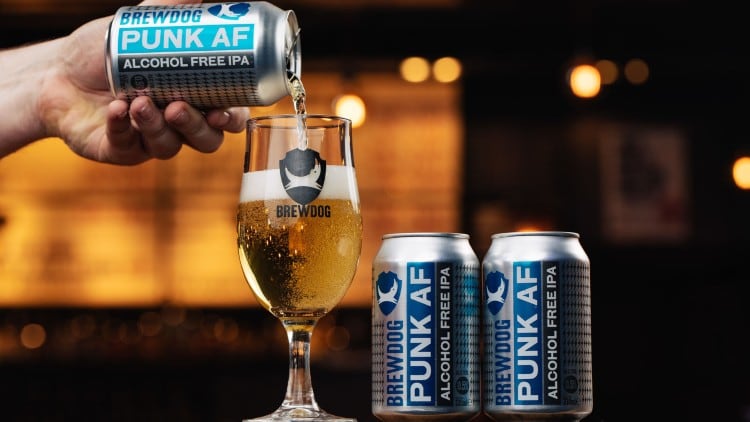
No need to miss a catch-up
Pubgoers who abstain from alcohol are still after great-tasting beer but are shunning the next day’s hangover and high levels of sugar.
Grundy says: “There’s a lot around occasion at the moment – people still want the pub to be the centre of the community.
“But [people have been] noting that when you go out to the pub to catch up with friends on a midweek evening or a Sunday, you can still have great drinks but without it leaving you feeling groggy on the Monday morning.
“We’re all so busy now. Everyone’s running around at 120mph but you don’t want to not have those great drinks with that friend you haven’t seen for a couple of months. But again, you have a deadline to meet the next morning,” he adds.
“We still very much want that togetherness and that social interaction – doing that over drinks, or having a great drink in your hand, is kind of our culture. But I think people want the slowdown associated with the higher ABV, the 5-6% [beers], less and less now.”
Operator Forsyth recommends that publicans start out by stocking a few well-known alcohol alternatives.
He says “It’s best not to overdo the AF (alcohol-free) beer and wine ranges. Just pick the best out there. BrewDog Punk AF is pretty good and so is Heineken 0.0.”
For publicans who want to start to expand their soft range beyond the standard sodas, Real Kombucha’s Begg says: “I suppose it’s a case of putting yourself in the mind of the customer standing at the bar looking for an alternative to alcohol.
“That category of non-drinkers is growing rapidly, and people are much more conscious of what they’re putting into their bodies. They’re crying out for drinks that aren’t crammed sky-high with sugars, sweeteners or additives. They want something that tastes superb and ticks the boxes in terms of sophistication of serve.”
Greene King senior category manager Andrew Carpenter says: “The low and no-alcohol drinks category has been growing in popularity, particularly over the past three years and is something we’ve been watching very closely.
“We first introduced a single low alcohol beer and cider to our drinks menu in 2017 and, following its success, we’ve since grown our range to include low alcohol wines, beers and ciders, and we’re now seeing sales growth in this category of 50%-plus year on year.
“Alongside our range of low and no alcohol beers and ciders we also have classic soft drinks, refreshing mocktails and more premium soft drinks.”

